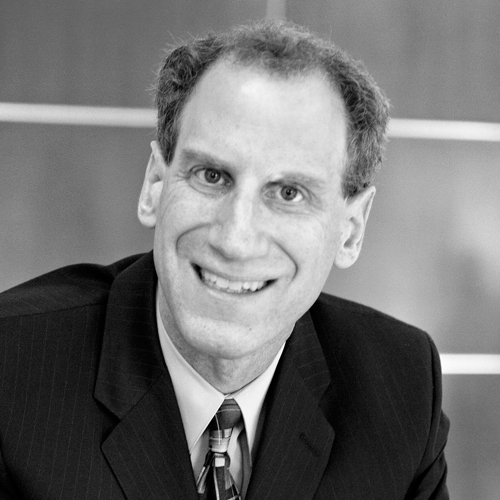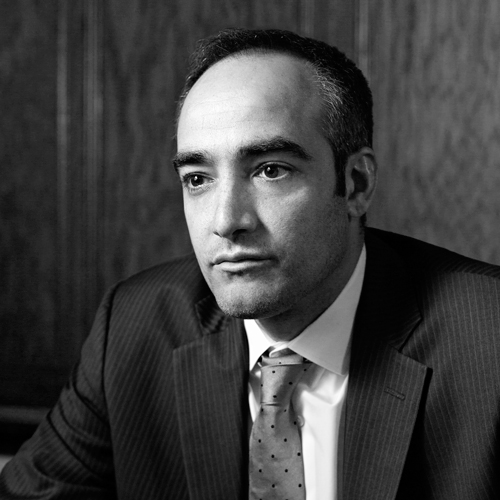When you’re a military child like I was, and your family moves around a lot, you learn to become extremely adaptable—that chameleon who figures out how to fit in and, at the very least, not rock the boat. I think my adaptability taught me how to be a people person: how to listen to people, hear what was important to them, interesting to them, and then sort of feed on that, so I could be a part of whatever the organization was.
I went in-house as NASCAR’s first trademark lawyer in 1999 and worked on several big trademark initiatives that it had going. I ultimately transferred to Daytona, Florida, to take over a massive antitrust lawsuit that had been filed against the sport. Being a trademark lawyer doesn’t really lend itself to antitrust cases, but I think my boss’s thinking was, “If anyone has the personality to go and make people feel okay about this very volatile process, it’s Karen. She’ll be able to go in there and explain what they need to do, minimize its effect on them—basically, get in and get out.”
I didn’t know anything going in. I called up the counsel and said, “Do you have an antitrust nutshell?” Basically, CliffNotes for lawyers. I was as vulnerable as I could be, saying, “Hey, I’m in charge of this, but I know next to nothing; please teach me. I’ll start with this book, and I’ll ask a lot of questions. But I do know this business, so I can help you get what you need; I just need to know what it is we’re facing.” So they helped teach me the law; I helped teach them the business. We were ultimately pretty successful together in that way.
It wasn’t an unusual case for professional sports, but it was the first of its kind in race car driving. It was very unnerving for the family that owns the company to, 60 years in, take such a potentially game-changing lawsuit. The issue was a conspiracy between the two family-owned companies. One company is public, and one is private. They’re both run by the same family, and the family owns the majority of the shares in the public company, and obviously owns 100 percent of the private company. And, because of the conspiracy allegation, it meant that all of the records of both companies, including any private family records, would be subject to discovery. And that was just a massive undertaking.
I paid the price, as the case definitely took its toll on my marriage. My first husband and I divorced in 2009, around the same time I was promoted to vice president within the company. It was a little bit of a “can’t have it all” moment. But I wouldn’t change a thing because ultimately, I think my three girls and I were better off for it.
I grew up in that “sandwich generation,” where the women before me had to be men to succeed (as attorneys)—hard-charging, putting people through their paces because that’s what was done to them. And behind me, I see a generation coming for my daughters in which it is as likely a woman will be their provider as it will be a man. There will be flexibility, taking turns, and the roles people play will be destigmatized from who’s parenting to who’s running the corporations. For me and my generation, we’re learning that you can have it all—you just can’t have it all at the same time.
At the first law firm I ever worked in, I was sent to court to argue a motion. I appeared before a judge, an older gentleman, who did not appreciate that I showed up in a pantsuit and felt like I should be in a skirt. That was relatively shocking to me. But there’s not really much you can do—he’s a judge, and you’re a lawyer—so I just nodded and smiled and went on with my case.
There have been many meetings in which I’m the only woman in the room and the language gets salty, immediately followed by an apology—to me. Which is exactly, in my mind, the wrong thing to do if you want women to feel like part of a team. I never take it as an insult but use it as my tiny, little platform to educate them. And I just swear right back at them. Someone drops an f-bomb, and I say, “If you ever f—in’ apologize to me again, that’s not going to be good because it says that somehow my ears are more sensitive than yours.”
People are still shocked when I tell them NASCAR is one of the most progressive environments for women that I’ve worked in. By that I mean that Bill France, Sr., who founded the company, and Bill France, Jr., who was running it when that lawsuit came in, were both married to extraordinarily strong women, who they stayed married to their whole lives and who were completely involved in the company and these businesses. The France brothers had an incredible respect for women. And it was never an issue that I was in a meeting in which I was participating strategically—they actively sought my advice. Yes, they can be rough-and-tumble, at times, but it’s never ever an issue that I’m a woman in the building.


